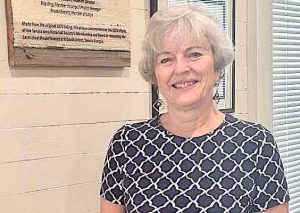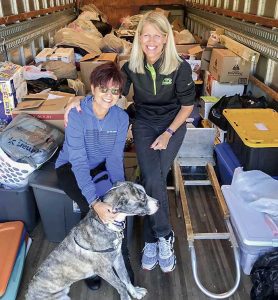Georgia Dept. of Labor (DOL) Commissioner Mark Butler spoke to the Coweta-Fayette Rotary Club Monday night, updating the group on DOL initiatives designed to combat unemployment and boost the skills needed for the Georgia job market which is becoming increasingly high-tech.
Butler noted that, with high employment from the Great Recession and with the trust fund depleted in 2009, the state had to borrow money from the federal government to meet unemployment insurance obligations. That amount plus interest amounted to nearly $1 billion.
“But there was no plan to pay those dollars back’” Butler said, adding that repaying the debt could have taken up to eight years.
But a plan was forthcoming, Butler said, explaining that the General Assembly lowered the number of weeks of unemployment eligibility from 26 weeks to 20 weeks, and then to 14 weeks as the jobless rate continued to fall. Workers today are averaging 12 weeks on unemployment as the state’s economy continues to improve incrementally.
“So we changed the system and we went after fraud and abuse and waste,” Butler said, noting that the state also began prosecuting violators. “Through the various efforts to pay the federal loan back we currently owe $297 million. And by this time next year we’ll be debt-free on the trust fund.”
Butler used the example of unemployment to relay what, from his perspective, is DOL’s primary job – to get people back to work.
“We found that even though we had high unemployment, many employers said they couldn’t find workers. Many of those companies during the recession invested in new technologies and didn’t have trained employees to use (that equipment),” Butler said, citing as an example the carpet industry in Dalton, where some companies invested in high-tech systems and did not have trained staff to operate the equipment once the business climate picked up.
That is where the state’s technical schools came into play, Butler said.
“The technical schools changed their curriculum very quickly and adapted to the new need to provide the new skills that were needed,” said Butler.
But the need that was manifested involved more than acquiring new technical skills. Some employers saw a deficit in the area of “soft skills,” the thing that most people consider a positive work ethic where people understand the basics of employment such as communicating effectively, coming to work on time, dressing appropriately for the job and getting along with others.
Responding to that set of needs, “Georgia Best” (Business Ethics Student Training) was created by DOL. The BEST program was piloted in Georgia a few years ago with 20 schools participating. Today there are 190 Georgia schools participating, and those schools take the program seriously, Butler said, noting that students are also trained in areas such as resume-writing and participating in mock interviews.
“We found that soft skills can make the difference between employee success and failure,” said Butler. “Sixty-nine percent of all first-time employees lose their job due to a lack of needed soft skills. So the lack of soft skills is a huge issue.”
Butler said the Georgia BEST program will be piloted in more than a dozen state middle schools beginning in January, and DOL is developing a video program for employers to show new employees.
When it comes to out-of-state companies considering a move to Georgia, Butler said companies like the incentives the state offers and they like the quality of life, “But they want to know if we have the talent they need for a large investment.”
With the state’s emphasis on initiatives such as Georgia Best, companies and even some states are calling to inquire about the program, Butler said.
Yet another facet of the employment picture involves veterans.
“We’re making an extra effort with returning vets,” said Butler. “We’re expecting 60,000-80,000 veterans to come back to Georgia in the next few years.”
An incentive for employers to hire those vets includes a $2,400 federal tax credit. That credit can climb to more than $9,500 if the vet is disabled, Butler said.
Butler spoke to nearly 30 Rotary members and guests at Senoia Coffee and Cafe on Main Street.











Leave a Comment
You must be logged in to post a comment.